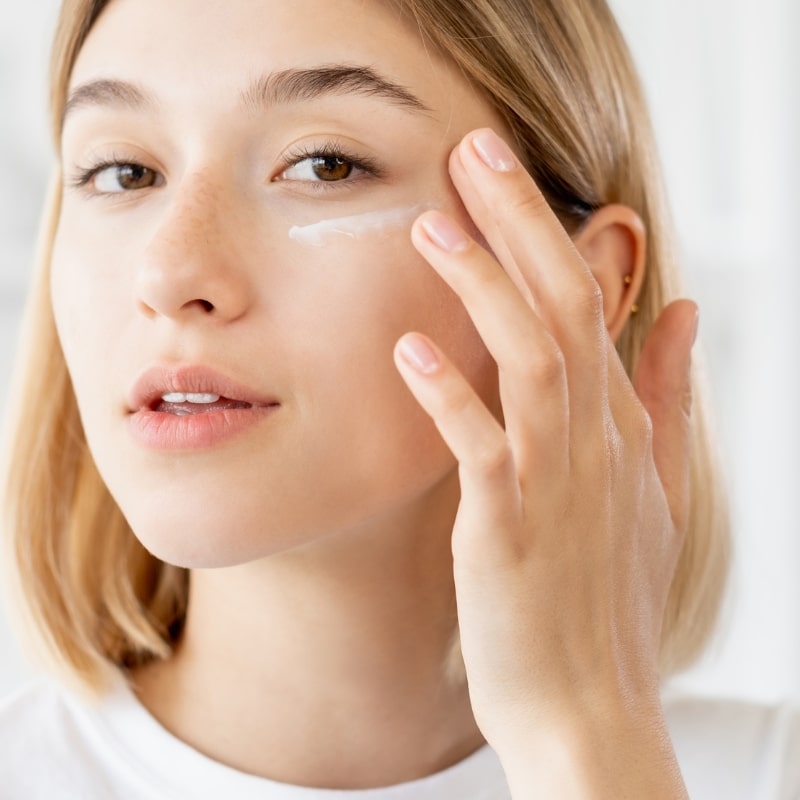Jennifer Aniston has never been shy about exploring new wellness routines. From infrared saunas to salmon-sperm facials, the actress has experimented with treatments that range from traditional to eyebrow-raising. However, in her recent interviews, one treatment stood out. Weekly peptide injections, she explained, have become a consistent part of her anti-aging regimen. In her own words, “I do think that’s the future.”
Aniston’s endorsement sparked renewed interest in peptides, but their use in medicine and aesthetics is hardly new. As dermatologists and researchers weigh in, it is clear that peptides may hold real promise for those seeking skin rejuvenation.
This blog explores how they work, what science says about their safety, and why Zeam Health & Wellness is embracing them as part of comprehensive care.
Jennifer Aniston and the Rise of Peptide Curiosity
Aniston has described her willingness to try nearly anything for her skin but is quick to emphasize which treatments stand out. Peptide injections, she explained, had noticeable effects on her skin’s texture and tone. “I swear by them,” she told Glamour. The simplicity of her endorsement caught attention, as unlike one-time gimmicks, this was a treatment she returned to weekly.
This wave of curiosity has drawn attention to the science behind peptides, particularly their clinical applications for aging skin.
The Role of Peptides in Skin Health
Peptides are short chains of amino acids, usually between four and fifty, that serve as the building blocks for proteins such as collagen and elastin. These proteins give skin its structure, firmness, and ability to bounce back.
Peptides are not new to medicine. Insulin, for instance, is a polypeptide hormone used daily by millions of people. Over the past decade, peptide-based treatments have expanded into therapies for cancer, cardiovascular disease, and now, aesthetic medicine.
In skincare, peptides are valued for their role in sending signals to cells. When introduced through injection, they can prompt the skin to increase collagen production and regenerate tissue more efficiently.
What Dermatologists Say About Peptide Therapy
Medical professionals are quick to point out that peptide therapy must be carefully administered. They emphasize the importance of choosing trusted providers. Peptide injections are not a one-size-fits-all approach. Instead, they should be tailored based on each person’s goals, skin type, and overall health.
They also agree that peptides complement other treatments. For individuals in their 30s or 40s noticing early signs of aging, peptides may offer a way to restore elasticity without altering facial movement or structure.
In addition to skin texture, some forms of peptide therapy have been explored for muscle tone, fatigue, and immune support. But for cosmetic purposes, their main value lies in reinforcing the skin’s natural ability to rebuild and protect itself.
Injectable Peptides vs. Topical Products
Most people are familiar with peptides through serums and moisturizers. These topical products can offer benefits over time, especially when paired with ingredients such as niacinamide or vitamin C. However, they have limitations in how deeply they penetrate the skin.
Injectable peptides bypass the skin’s surface barrier, delivering bioactive compounds directly to targeted areas. This allows for greater precision in boosting collagen and elastin synthesis.
These injections may improve fine lines, texture, and overall skin tone. Peptides are considered “messenger molecules,” tools that guide the body to produce what the skin needs to stay firm and elastic.
While topical products work gradually, injections may offer more immediate results, especially when part of a broader skincare plan.
Reviewing the Research on Safety and Effectiveness
A recent study published in Frontiers in Pharmacology provides new insight into the safety profile of injectable peptides. The study focused on placental polypeptide injections, which are used in several countries for skin rejuvenation and immune support. Conducted across three hospitals in China, the real-world trial observed 3,000 patients who received peptide injections as part of their care.
Out of all participants, only one person experienced a mild adverse reaction that was directly linked to the injection. This results in an adverse drug reaction (ADR) rate of just 0.03%, a remarkably low figure for any injectable therapy. No serious adverse events were recorded.
Researchers concluded that the treatment was well tolerated across different age groups, including patients with comorbidities. These findings provide reassurance for individuals interested in aesthetic peptide therapy under clinical supervision.
Comparing Peptides With Other Aesthetic Treatments
Peptides are often grouped into the broader category of injectables, but they function quite differently from Botox or dermal fillers. Botox works by relaxing facial muscles to reduce movement-related wrinkles. Fillers add volume beneath the skin to create a smoother appearance.
Peptide injections do neither. Instead, they stimulate the skin’s own cells to produce more collagen and elastin. Rather than masking signs of aging, peptides aim to rebuild the skin from within.
While not a substitute for Botox or fillers, peptides can serve as a complementary treatment. For individuals looking to address early signs of aging or enhance skin resilience without affecting muscle movement, peptides provide a biologically driven alternative.
Sorting Facts From Myths About Peptide Injections
Peptides may sound like the newest skincare craze, but many misconceptions surround them. Some products use the term “peptide” loosely, creating confusion about what is actually being delivered. Others promote peptides as a cure-all, failing to explain the importance of formulation and administration.
Here are a few key clarifications:
- Peptides are not all the same: Different peptides have different effects, and not all are intended for skin rejuvenation.
- Results vary: Some people notice visible improvement quickly, while others experience more gradual changes.
- Expert guidance matters: Choosing a licensed medical provider ensures the product, dosage, and technique are optimized for safety and effectiveness.
Like any medical or cosmetic intervention, peptide injections should be part of a plan and not a shortcut.
Explore Skin Rejuvenation Options With Confidence
At Zeam Health & Wellness, we believe that skin health is both science and self-care. Our providers offer injectable therapies at our Roseville location as part of a personalized approach to aesthetic wellness.
Whether you are curious about smoothing fine lines, improving skin texture, or enhancing your glow over time, we are here to help you explore safe, evidence-based options. Our focus is on treatments that support long-term skin vitality.
Schedule a consultation today to learn how peptide injections might fit into your skincare goals.




